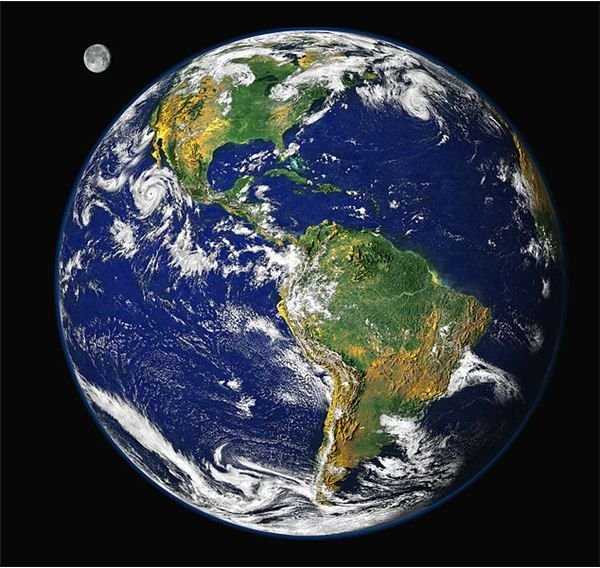Effects of Deforestation: Consequences and Solutions
Definition of Deforestation
Deforestation refers to the large removal of forests such as coniferous, temperate, and tropical rainforests. To date, only about 22 percent of the world’s forests still remain intact and this trend is slowly disappearing due to the continued removal of forests. Scientists predict that if this rate continues, the majority of forests will disappear in 100 years.
Initially, deforestation largely took place in regions such as North America, Europe, and the Middle East, however, this has changed. Since these regions have removed the majority of their forests, there has been a shift of deforestation to tropical regions such as Latin America, Africa, and parts of Asia. Overall, the effects of deforestation are devastating unless the world acknowledges the problem and works toward a solution.
Reasons for Deforestation
There are a multitude of reasons why people chop down forests worldwide. One of the biggest reasons is attributed to farmers who have to clear forests to plant agricultural goods or allow animals to graze for food. Another form of deforestation is a method called “slash and burn.” Basically, individuals will clear a small part of a forest to feed themselves and when the resources are depleted they move on and continue the process.
The logging industry is another factor. Loggers clear forests to provide materials for the world which include building materials such as wood to other goods such as paper supplies. Loggers also cut down forests for other materials such as gums and resins that are

used in different products.
Besides the need for material goods, deforestation is used to for other methods. One example includes clearing forests to construct roads for societies while other factors, such as forest fires, naturally clear forests. Even though humans are not the only reason for deforestation, forests are still an important factor for the world.
Importance of Forests

Forests are very important and provide multiple benefits for the world. For example, forests provide shelter for over 70 percent of animal species here on Earth. If not taken seriously, the effects of deforestation can eliminate the countless benefits forests provide.
One of the most important functions forests provide is the process of photosynthesis. Trees and plants convert carbon dioxide into oxygen which most animal species rely on for receiving energy through respiration. Plants and trees also convert carbon dioxide that is harmful to the environment and without these vital forests, the Earth could experience unprecedented carbon dioxide levels.
Forests also contribute to the climate by using water for nutrients and recycling it back to the atmosphere. By using water as a resource, forests become barriers against flooding, however, if massive deforestation occurs, many regions can become prone to flooding. In addition, forests provide soils with rich nutrients allowing crops to be grown.
Lastly, forests contribute many beneficial materials for mankind and animals. For example, tropical rainforests provide beneficial materials such as medicine which can be used to form cures against various diseases and injuries. In addition, forests provide shelter to countless animal species in the world today.
Solutions to Deforestation
So what are some solutions to the effects of deforestation? There are a couple solutions that can be taken to counteract the harmful

consequences deforestation produces. Although these steps may take time to initiate, it is vital to develop steps that can solve this global crisis.
One step is to recognize that deforestation is a problem in the world today. One way is to set up a worldwide organization dealing with deforestation. For example, an organization called Oslo Forest Climate Conference met in 2010 and tried to set up guidelines to help reduce the impact of deforestation.
Another step is to allow help renew the growth of forests. This can be accomplished by various methods such as replanting forests to assigning depleting areas as restricted from human hands. Although this process will take time, it is important to initiate these guidelines now before the forests are completed depleted.
In conclusion, the effects of deforestation are devastating to the planet. If steps are not taken to stop deforestation soon, the world will risk losing one of its most important contributors to the environment. Not only will deforestation take away vital materials such as wood and medicine, but it may also endanger countless animal species including human beings.
References
Sources:
- National Geographic. “Deforestation.” https://environment.nationalgeographic.com/environment/global-warming/deforestation-overview.html
- University of Michigan. “Global Deforestation.” https://www.globalchange.umich.edu/globalchange2/current/lectures/deforest/deforest.html
Images:
- Dilmen, Nevit. “Newborn Examination.” https://commons.wikimedia.org/wiki/File:Newborn_Examination_1967.jpg
- Guythall. “Loggers and Hooker Oak.” https://commons.wikimedia.org/wiki/File:80s_Loggers_and_Hooker_Oak.jpg
- NASA. “Nasa Blue Marble.” https://commons.wikimedia.org/wiki/File:Nasa_blue_marble.jpg
- Pacman. “Mediterranean Forests.” https://commons.wikimedia.org/wiki/File:Mediterranean_forests_1.JPG
